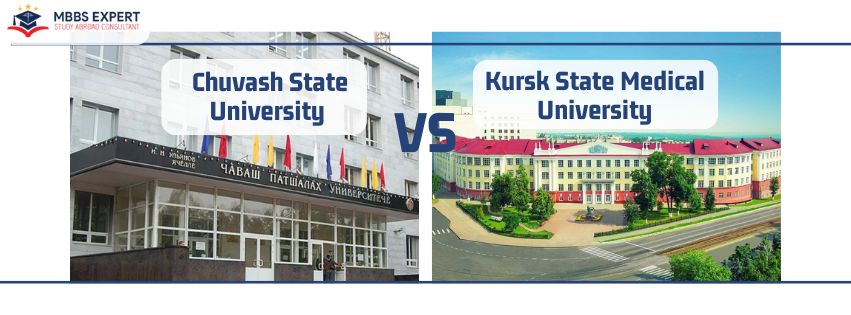Study MBBS at Ingush State University, Russia – Your Gateway to an Affordable Medical Education…
Internship and Clinical Training Opportunities in Russian Medical Universities
![]()
Internship and Clinical Training Opportunities in Russian Medical Universities
In recent years, Russian medical universities have emerged as prominent choices for international students seeking quality medical education. With globally recognized degrees and a robust curriculum, these institutions offer a unique blend of theoretical knowledge and practical experience. This blog explores the internship and clinical training opportunities available for aspiring medical professionals in Russian medical universities, particularly for Indian students.
Why Choose Russia for Medical Education?
High-Quality Education
Russian medical universities are known for their rigorous academic standards and comprehensive medical programs. Many institutions are accredited by global organizations, ensuring that students receive a degree that is respected worldwide. The medium of instruction is often English, making it accessible for international students.
Affordable Tuition Fees
Compared to Western countries, the cost of education in Russia is significantly lower. This affordability extends to living expenses, making it an attractive option for Indian students seeking quality education without breaking the bank.
Diverse Clinical Exposure
Russia’s extensive healthcare system provides students with a diverse range of clinical training opportunities. This exposure is crucial for developing practical skills and competencies necessary for future medical practice.
Overview of Internship and Clinical Training Opportunities
Internship and clinical training are vital components of medical education, allowing students to apply theoretical knowledge in real-world settings. In Russia, medical universities typically integrate internships into their programs, offering hands-on experience in various medical fields.
Types of Clinical Training
- General Medicine Internships
- Focus on various medical disciplines, including internal medicine, pediatrics, and surgery.
- Students engage in patient assessments, diagnosis, and treatment planning under the supervision of qualified professionals.
- Specialized Internships
- Opportunities to work in specific fields such as cardiology, neurology, or orthopedics.
- Allows students to gain in-depth knowledge and skills in their area of interest.
- Research Internships
- Students can participate in ongoing research projects, contributing to medical advancements.
- This experience is valuable for those considering a career in academia or specialized fields.
Key Institutions Offering Robust Internship Programs
- Moscow State Medical University (MSMU)
One of the oldest and most prestigious medical universities in Russia, MSMU offers extensive internship opportunities across various hospitals and clinics in Moscow. Students have access to a wide range of specialties, ensuring a well-rounded clinical experience.
- Saint Petersburg State Medical University
This university provides students with hands-on training through its affiliated hospitals. With a strong emphasis on practical education, students can gain valuable insights into patient care and management.
- Kazan State Medical University
Kazan State Medical University is known for its innovative teaching methods and comprehensive internship programs. Students here are encouraged to engage in clinical practices from early in their education, fostering a deeper understanding of medical procedures.
- Novosibirsk State Medical University
Situated in Siberia, this university offers a unique opportunity for students to work in diverse medical settings. The institution collaborates with various hospitals, providing students with a rich clinical exposure.
Internship Structure and Duration
The structure and duration of internships vary across universities and programs. Typically, medical internships in Russia last from six months to a year, depending on the specific requirements of the university and the student’s chosen specialty.
Stages of Internship
- Initial Assessment and Selection
- Students often undergo an assessment to determine their interests and skills.
- Advisors assist in selecting appropriate internship placements based on individual career goals.
- Clinical Rotations
- Interns rotate through different departments, allowing them to gain a holistic understanding of medicine.
- Exposure to various medical fields helps students develop adaptability and critical thinking skills.
- Final Assessment
- At the end of the internship, students are typically evaluated on their performance.
- Feedback from supervisors is crucial for further personal and professional development.
Benefits of Clinical Training in Russia
Real-World Experience
Participating in internships and clinical training provides students with invaluable real-world experience. Engaging with patients, practicing medical procedures, and collaborating with healthcare professionals prepares students for their future careers.
Networking Opportunities
Internships allow candidates to build professional networks within the medical community. Establishing relationships with mentors and peers can lead to future job opportunities and collaborations in the field.
Enhanced Employability
Having clinical training experience significantly enhances a student’s employability. Employers often look for candidates who have practical experience and are familiar with the dynamics of the healthcare environment.
Preparation for FMGE
For Indian students aspiring to practice medicine in India after completing their education abroad, clinical training in Russia prepares them for the Foreign Medical Graduate Examination (FMGE). Gaining practical exposure helps build the necessary skills and confidence to excel in this critical assessment.
Challenges Faced by Students
While the opportunities in Russian medical universities are vast, students may encounter several challenges during their internships and clinical training:
Language Barrier
Though many medical programs are offered in English, students may face communication barriers in clinical settings where local languages are used. It’s advisable for students to learn basic Russian to facilitate better interactions.
Cultural Differences
Adjusting to a new culture can be challenging. Students must be open-minded and willing to adapt to different work ethics, communication styles, and professional hierarchies.
High Expectations
The clinical environment can be demanding, with high expectations from both professors and supervisors. Students must be prepared to work hard and manage stress effectively.
Tips for Success in Clinical Training
- Stay Proactive: Take initiative in your learning and seek out opportunities for additional responsibilities during your internship.
- Communicate Effectively: Develop your communication skills, both in English and Russian, to ensure clear interactions with patients and staff.
- Embrace Cultural Differences: Be open to learning about the local culture and adapting your approach accordingly.
- Network: Build relationships with peers and mentors to expand your professional network, which can benefit your career in the long run.
Conclusion
Internship and clinical training opportunities in Russian medical universities provide a solid foundation for aspiring medical professionals. With a blend of high-quality education, practical experience, and supportive environments, these universities equip students with the skills necessary to excel in the medical field. For Indian students seeking a rewarding medical career, Russia stands out as a premier destination that offers not just education but also a pathway to global healthcare opportunities. Embrace the journey, and make the most of the invaluable experiences that await you in Russia!





